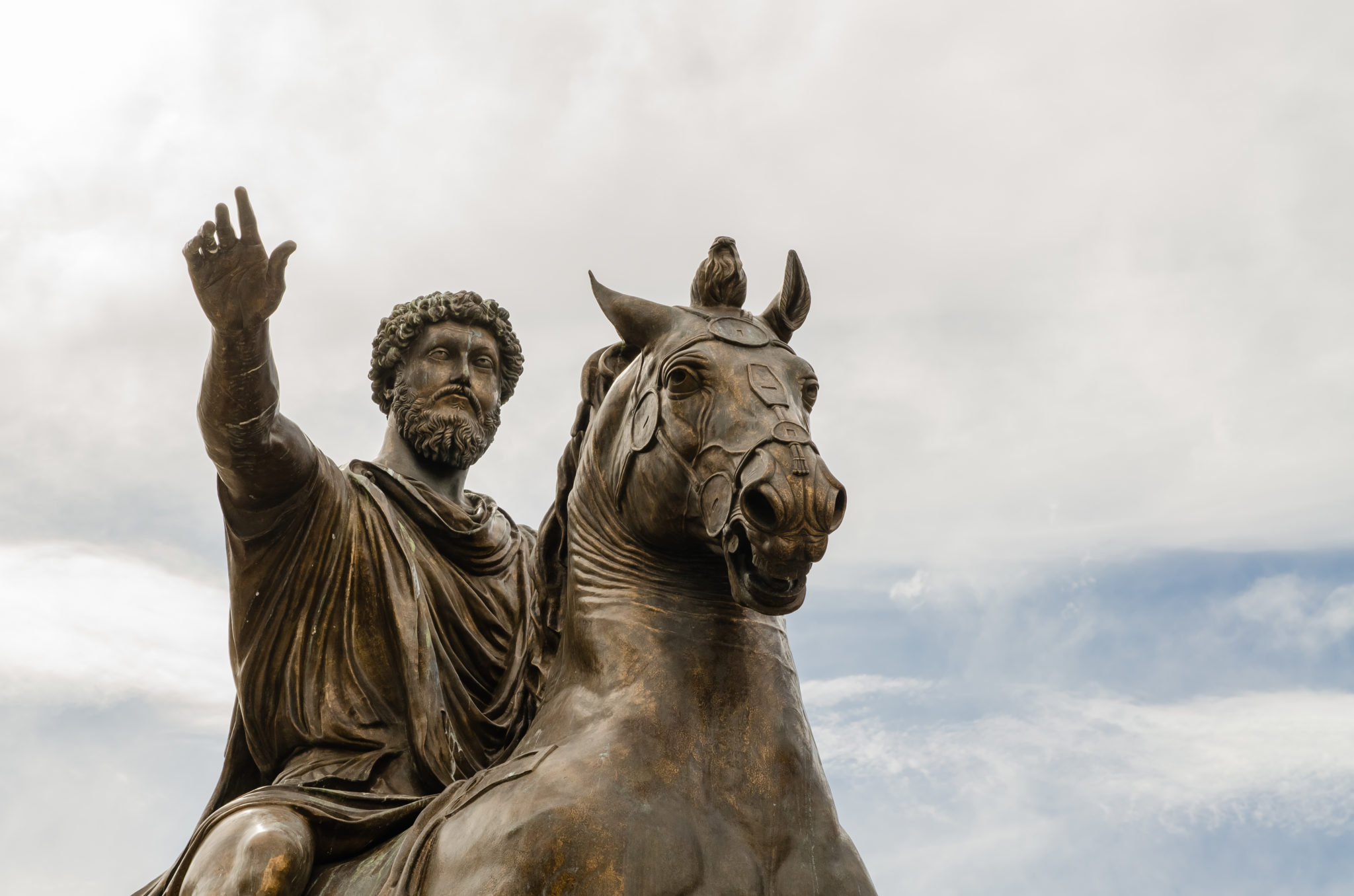
Marcus Aurelius, the renowned Roman Emperor and Stoic philosopher, has left a lasting impact on history and philosophy. While many may be familiar with his role as a wise and just ruler, there are certain surprising facts about Marcus Aurelius that may not be as well-known. In this article, we will delve into 19 intriguing facts about Marcus Aurelius that shed light on his personal life, accomplishments, and unique characteristics. From his early influences to his renowned philosophy, we will explore the lesser-known aspects of this extraordinary individual. Get ready to be amazed as we uncover the surprising secrets behind one of history’s most revered figures, Marcus Aurelius.
Key Takeaways:
- Marcus Aurelius, the stoic Roman Emperor, was not only a wise philosopher but also a compassionate leader who led by example and valued ethics in governing the empire.
- His timeless work, “Meditations,” continues to inspire individuals seeking self-improvement and inner peace, showcasing his enduring influence on Western philosophy.
Marcus Aurelius’ Meditations is a collection of his personal reflections and philosophical musings.
Considered one of the greatest works of ancient philosophy, this insightful book offers a glimpse into the emperor’s thoughts on various aspects of life, ethics, and self-improvement.
His Early Education and Love for Philosophy:
Marcus Aurelius received an exceptional education in philosophy from a young age.
Under the guidance of renowned philosophers like Herodes Atticus and Marcus Cornelius Fronto, he developed a deep love and understanding of Stoicism.
Stoicism as a Guiding Principle:
Stoicism heavily influenced Marcus Aurelius’ personal and political life.
This philosophy taught him to control his emotions, stay calm during challenging times, and prioritize the well-being of the empire above personal desires.
An Empress by His Side:
Marcus Aurelius’ wife, Faustina the Younger, played a significant role in his life.
Known for her wit and intelligence, she was not only his partner but also an influential advisor.
The Honorary Title of “Philosopher-King”:
Marcus Aurelius is often referred to as the “Philosopher-King.”
His commitment to philosophy and his wise rule earned him this prestigious title.
A Stoic Emperor on the Battlefield:
Marcus Aurelius led the Roman army, even in the midst of wars.
Unlike many emperors, he actively participated in military campaigns, prioritizing the safety and victory of his troops.
The Stoic’s Compassion for the Enemy:
Marcus Aurelius showed remarkable compassion towards his enemies.
He believed in treating captives with respect and dignity while emphasizing the importance of mercy.
The Legacy of the Antonine Plague:
Marcus Aurelius faced the deadly Antonine Plague during his reign.
This pandemic claimed the lives of millions, challenging his leadership and resilience.
Letters to Himself:
Marcus Aurelius wrote a series of letters to himself, called the “Wandering Thoughts.”
In these personal writings, he explored his innermost thoughts, struggles, and aspirations.
The Influence of Philosophy:
Marcus Aurelius admired and respected the teachings of Epictetus and Plato.
He frequently referenced their works in his Meditations, showcasing his deep appreciation for their philosophies.
A Philosopher on Ethics:
Marcus Aurelius emphasized the importance of ethics in governing the empire.
He believed in leading by example and holding oneself accountable to the highest moral standards.
Rome’s Golden Age:
Marcus Aurelius’ reign is often referred to as the “Golden Age” of the Roman Empire.
Under his leadership, there was a period of relative peace and prosperity throughout the empire.
The Philosopher’s Legacy:
Marcus Aurelius’ philosophical writings continue to inspire and influence people today.
His teachings on resilience, self-reflection, and ethical behavior resonate across centuries.
The Last of the Five Good Emperors:
Marcus Aurelius was the last of the “Five Good Emperors.”
These emperors were known for their competent rule and dedication to the welfare of the Roman Empire.
A Multi-Talented Emperor:
Marcus Aurelius was not just an exceptional military leader but also a talented writer and orator.
His diverse skills contributed to his success as both a philosopher and ruler.
The Filial Emperor:
Marcus Aurelius had immense respect and love for his adoptive father, Antoninus Pius.
He sought inspiration from his father’s virtues and incorruptible leadership.
The Philosopher’s Retreats:
Marcus Aurelius frequently retreated to his country estates to find solace and contemplate.
These peaceful havens allowed him to reconnect with nature and reflect on his thoughts.
A Life Cut Short:
Marcus Aurelius’ life was tragically cut short at the age of 58.
He passed away in 180 AD, leaving behind a profound impact on the Roman Empire and Western philosophy.
The Enduring Influence of The “Mediations”:
Marcus Aurelius’ Meditations remain a treasured guide to life.
Its timeless wisdom continues to inspire individuals seeking self-improvement and inner peace.
Conclusion
In conclusion, Marcus Aurelius was a fascinating figure in history, known for his stoicism and role as Roman Emperor. Despite the limited information available about his personal life, there are several surprising facts that shed light on his character and contributions. From his humble beginnings to his philosophical writings, Marcus Aurelius left a lasting impact on the Roman Empire and the world. His wisdom and leadership continue to inspire individuals to this day, making him an enduring symbol of resilience and introspection.
FAQs
Q: What was Marcus Aurelius’ role in the Roman Empire?
A: Marcus Aurelius was the Roman Emperor from 161 to 180 AD. He led the empire during a time of internal conflict and external threats.Q: Was Marcus Aurelius a philosopher?
A: Yes, Marcus Aurelius was a prominent philosopher. His philosophical thoughts and beliefs are reflected in his famous work, “Meditations.”Q: How did Marcus Aurelius practice stoicism?
A: Marcus Aurelius embraced the principles of stoicism, which emphasized self-discipline, the acceptance of fate, and the development of inner peace and resilience.Q: Did Marcus Aurelius have any notable accomplishments?
A: Marcus Aurelius is best known for his accomplishments in the military as well as his contributions to philosophy. He successfully defended the Roman Empire against several invasions and played a significant role in shaping its governance.Q: What is the significance of Marcus Aurelius’ writings?
A: Marcus Aurelius’ writings, particularly his book “Meditations,” provide valuable insights into stoic philosophy and offer guidance on how to navigate life’s challenges.Q: How has Marcus Aurelius’ legacy influenced society?
A: Marcus Aurelius’ legacy continues to resonate in modern times. His teachings on resilience, virtue, and self-reflection have influenced philosophers, leaders, and individuals seeking personal growth.
Inspired by Marcus Aurelius' remarkable life? Delve deeper into his legacy by exploring the intriguing facts surrounding his iconic statue, which stands as a testament to his enduring wisdom. Unravel the mindblowing truths about Caracalla, Aurelius' controversial successor, whose reign was marked by both triumph and turmoil. Embark on a captivating journey through the annals of Roman history, where every stone tells a story and every fact illuminates the complexities of power, philosophy, and the human experience.
Was this page helpful?
Our commitment to delivering trustworthy and engaging content is at the heart of what we do. Each fact on our site is contributed by real users like you, bringing a wealth of diverse insights and information. To ensure the highest standards of accuracy and reliability, our dedicated editors meticulously review each submission. This process guarantees that the facts we share are not only fascinating but also credible. Trust in our commitment to quality and authenticity as you explore and learn with us.


